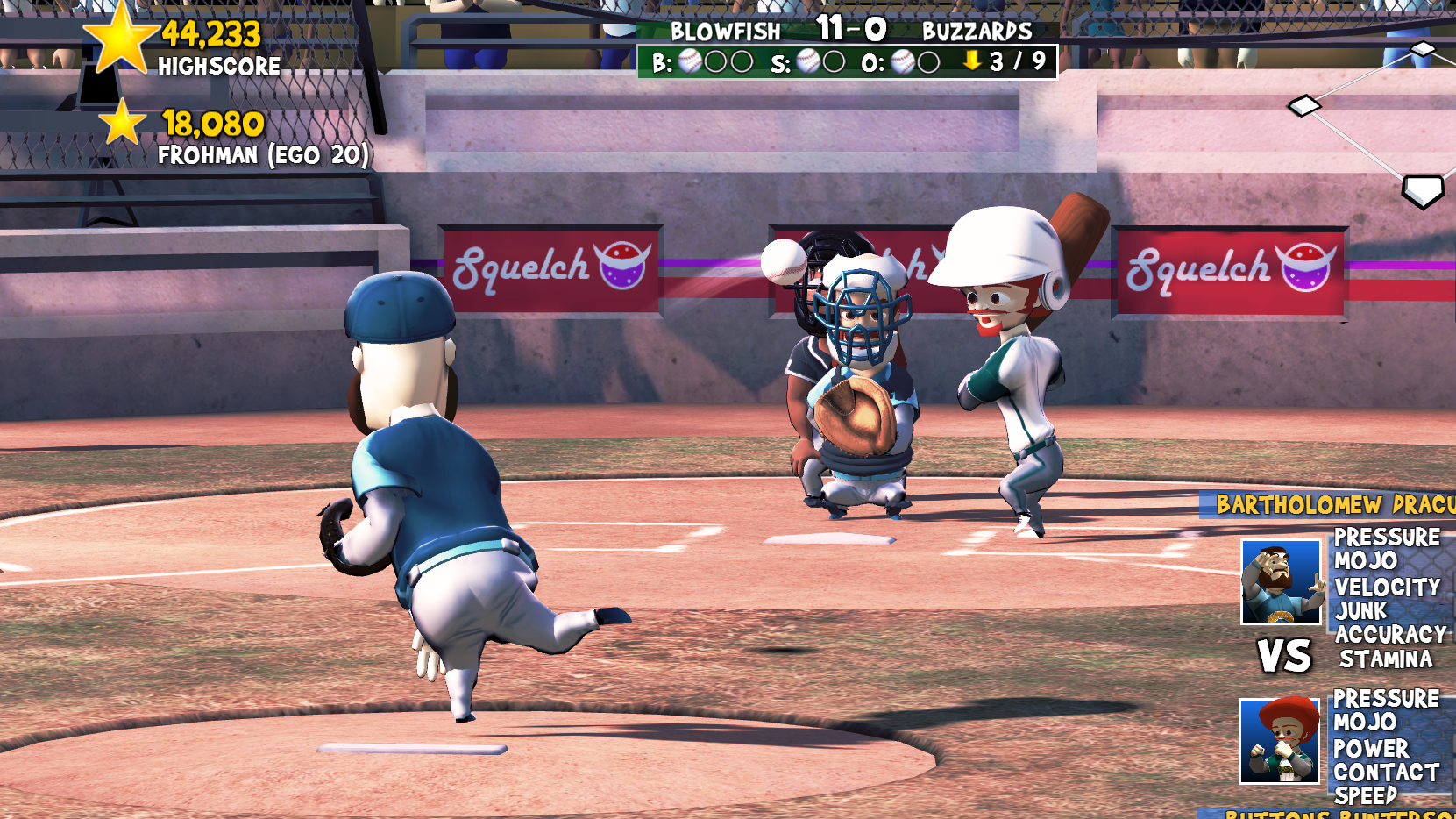Our Verdict
Casual and silly yet still tense and exciting. It's a shame there's no online multiplayer.
PC Gamer's got your back
What is it? A cartoony baseball game.
Expect to pay: $20/£15
Developer: Metalhead
Publisher: Metalhead
Reviewed on: Intel i7 x980 3.33 GHz, 9 GB RAM, Nvidia GeForce GTX 960
Multiplayer: Local only
Link: Official Site
Super Mega Baseball might be exactly what you're looking for in a baseball action game on PC. It's fast and casual but still invites utter absorption in your players and season. It's arcadey but contains a bit of depth and requires some strategy. Its controls are simple to learn but take a lot of practice to master. Most of all, it's a fun and exciting baseball game, provided you're not looking for a major league simulation, and if you're content to play offline.
As you can tell from the title and cartoony style, Super Mega Baseball is a heightened version of baseball. Lantern-jawed players leap into the batter's box and pound their tree-trunk bats against the plate, hang their heads or burst into tears after strikeouts, and sweat rivers when they're under pressure. Don't let the silliness fool you, though, it's still a well-made baseball game, and getting a clutch hit, making an amazingly play, and scoring the winning run (or barely preventing it) are just as satisfying as they are in more serious baseball sims.
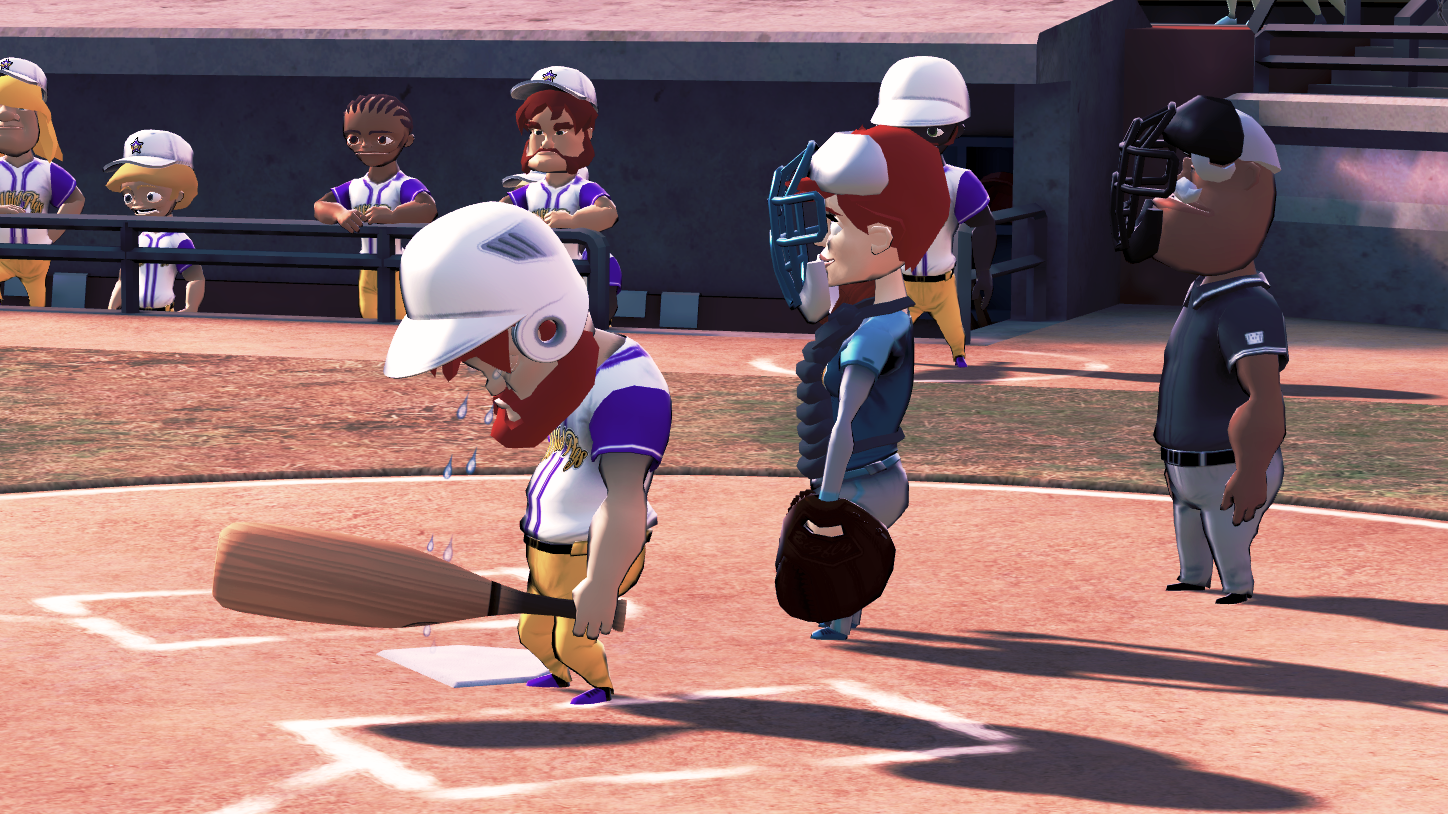
Probably the biggest dealbreaker for some: there's no online multiplayer to speak of, only local. There are only two modes, exhibition or season, there are only 12 teams, and the longest season is 48 games. There's no baseball economy, no farm system, no signing, trading, or demoting of players. Your bench is only a few players deep and your bullpen only contains a couple relievers and a closer. This isn't really a baseball simulation, in other words, and it's not trying to be.
While you can't alter your roster, there are RPG elements to tailor your players and give them more well-defined roles. You can change their looks and names (though not their uniforms, unfortunately), earn upgrades to improve their stats, and hire staff like trainers and stylists who provide bonuses like better throwing arms, more endurance, greater confidence, and so on. This allows you to slowly turn a contact hitter into a slugger or an average runner into a speed demon over the course of a season, and makes obsessive tinkering with your lineup and bench worthwhile.
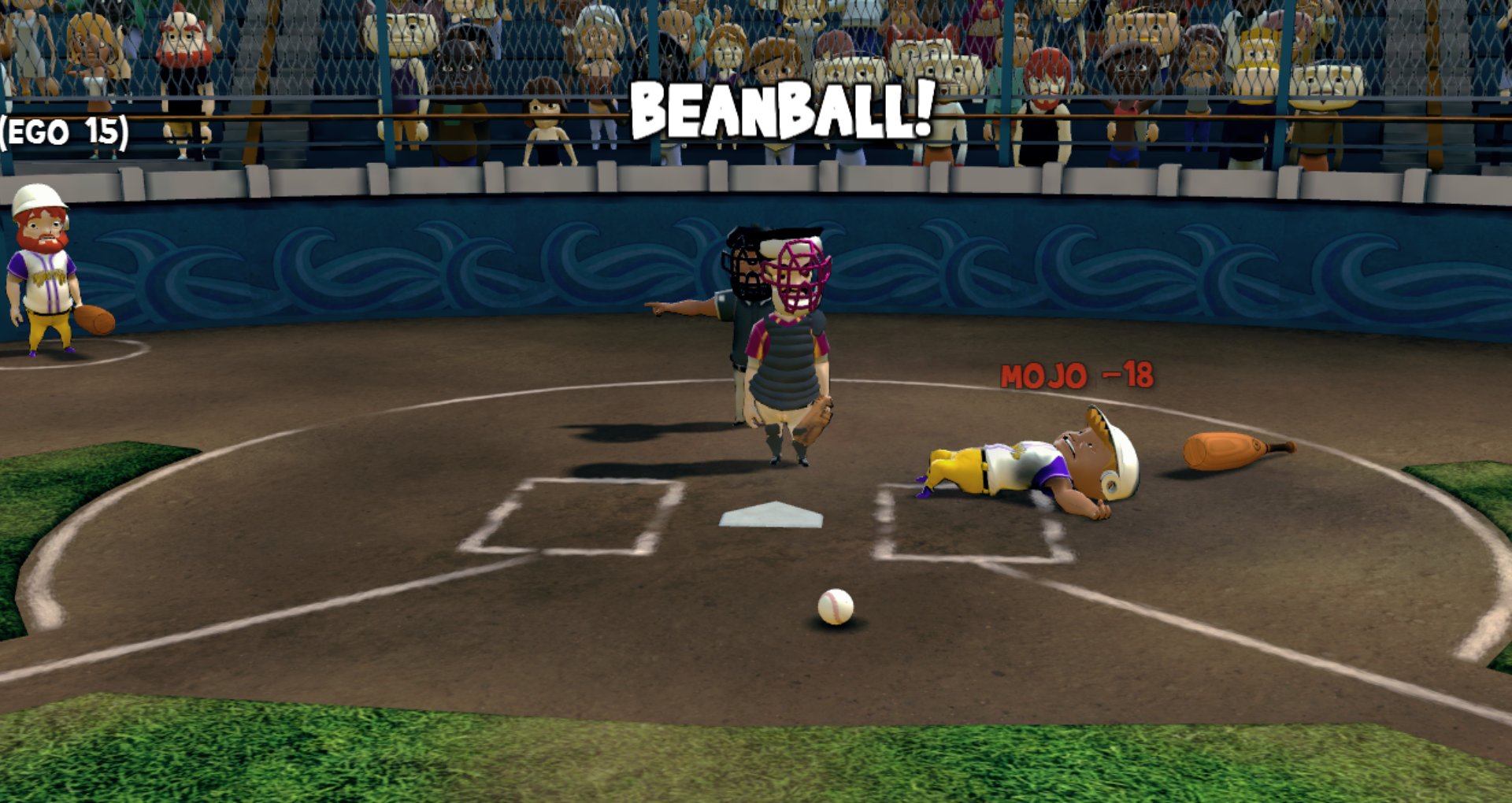
Each pitcher has the same nine pitches to choose from, though if one has a great arm you'll probably lean heavily on four-seamers and cut fastballs, and for those with greater accuracy you'll want to nibble corners with breaking balls. Once you've picked your pitch, you throw it while quickly trying to align your reticle with the target. A good mix of pitches is required, as batters can anticipate pitches if you use them too often. As a batter, your reticle will drift toward the location of the pitch, though you can aim it manually for better (or sometimes worse) accuracy. Timing your swing to the speed of the pitch is key for good contact, and power-hitting requires you to time your swing not just with the pitch but with a quickly filling and depleting meter.
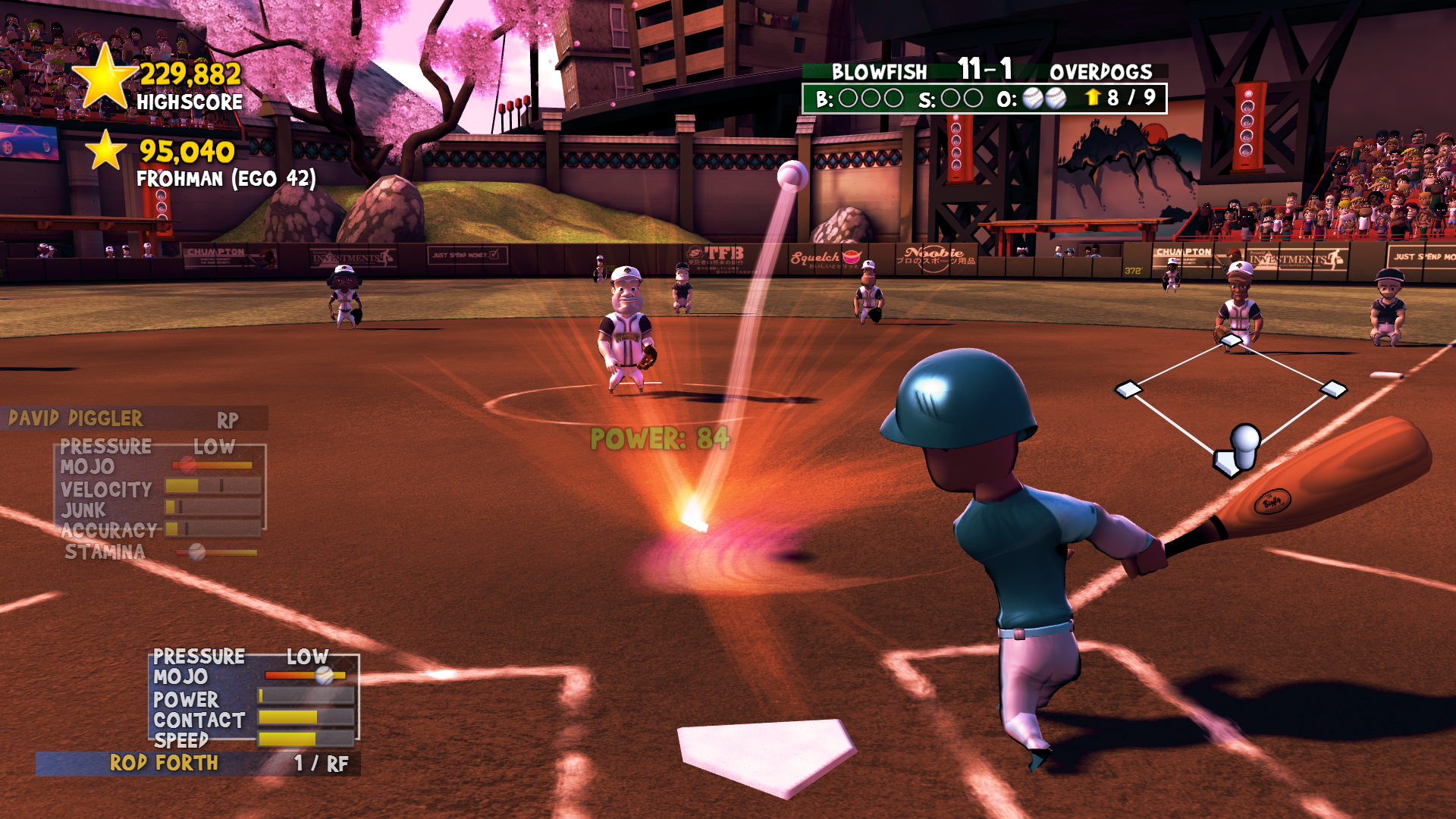
Fielding, as in all baseball games, is mostly CPU controlled. Fielders will run where they need to be, though directing them manually puts a little extra speed in their steps. If a line drive or a sharp grounder passes near an infielder, you get a brief moment of super slow-motion, just enough to decide if you want a player to dive or leap for a ball. Good throws can be powered-up once you've got the timing right, leading to exciting double-plays, and hitting the cutoff man or woman is essential to preventing runs. Baserunning takes a while to get a hang of, using a combination of controller triggers and the stick to select specific runners, but after a few games it becomes instinctive and works well.
In high-pressure situations, a player's Mojo comes into play. Players with good Mojo excel under stress, while those with poor Mojo don't perform as well. This is fun—players will sweat profusely or shoot steam out of their ears when they're stressed, and knowing a pitcher or batter might crack under pressure adds to the tension. It's particularly enjoyable to see a batter step in and grow more and more nervous as your confident pitcher fools them with diving forkballs and filthy screwgies. I do question how the game decides what a high pressure situation is, though. A pitcher getting nervous with runners on in the ninth makes sense, but not when he's riding a ten-run lead.
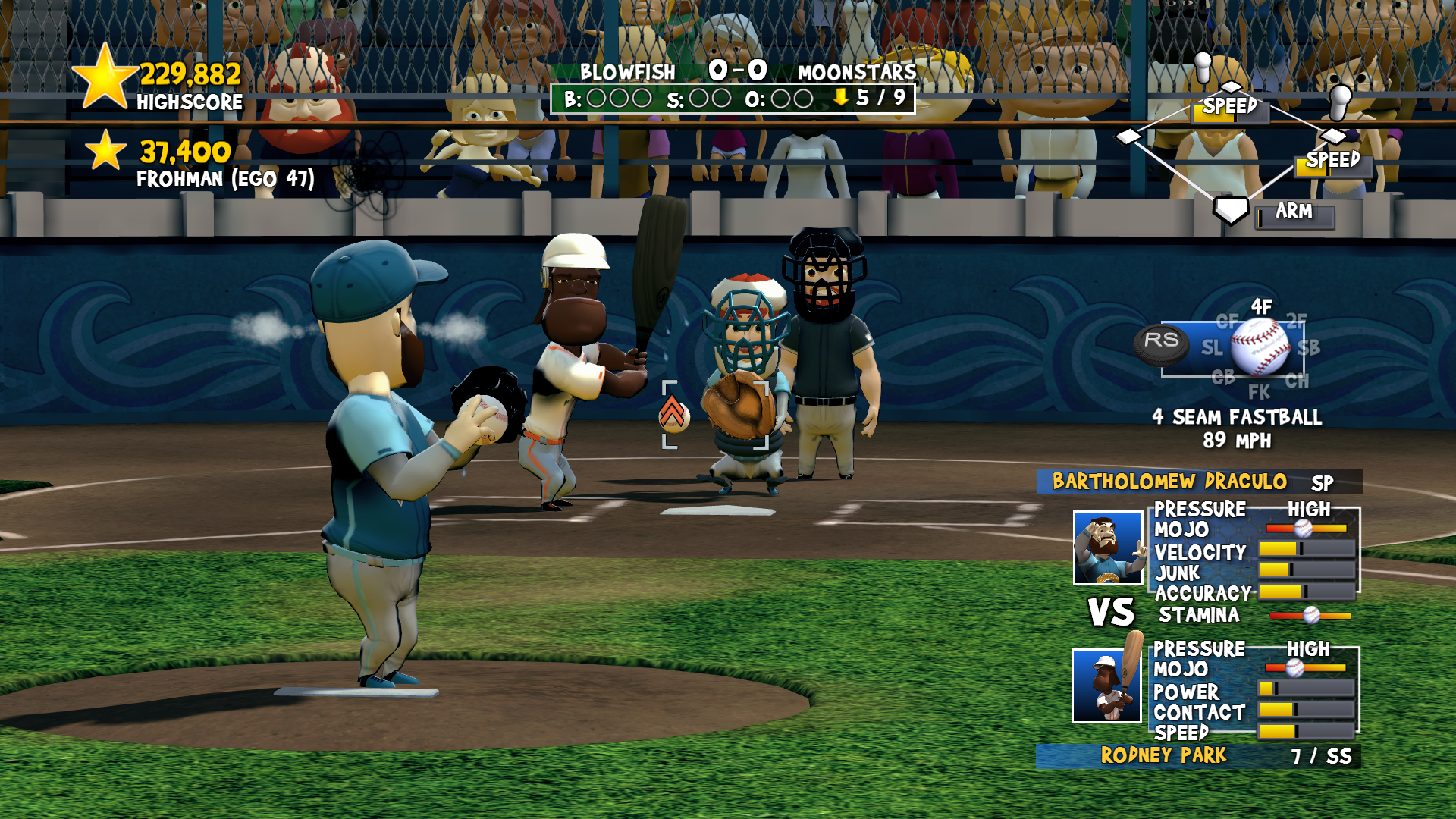
You can play with keyboard/mouse or controller, but I'd definitely recommend the controller (I used a 360 controller), both because it's much easier and all of the on-screen prompts are for controllers only, which stinks (you can only see the keyboard commands in the help menu). Also, the UI is a bit cluttered and I wish it would make better use of my monitor's real estate at 1920x1080. The difficulty system is great, however, with batting, fielding, pitching, and baserunning all having individually adjustable values between 1 and 100, meaning you can seriously fine-tune the game to find the level of challenge you're looking for.
As cartoony as it looks, I found myself quite invested in my team, the Blowfish, during the season I played, obsessing over which upgrades to bestow upon which players and who should ride the pine. I experienced plenty of great baseball moments, with a number of close games, heroic performances, high-pressure situations, and a desperate late-inning squeeze play to get me into the playoffs. It’s not a deep simulation, but for a fun, semi-casual yet challenging baseball game, Super Mega Baseball is your best bet on PC.
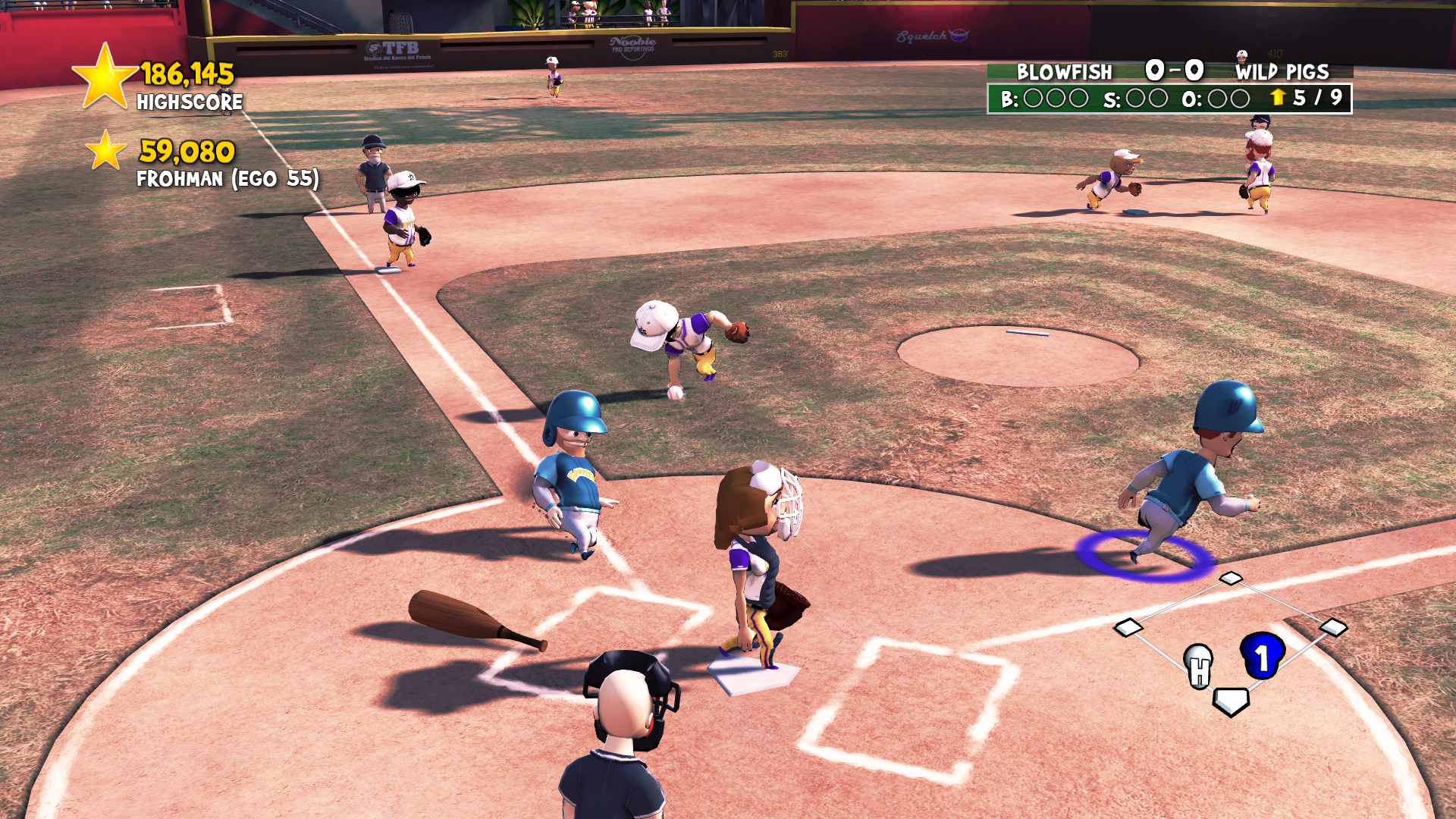
A stand-up triple followed by a perfectly executed squeeze bunt? Few things in baseball feel as good.
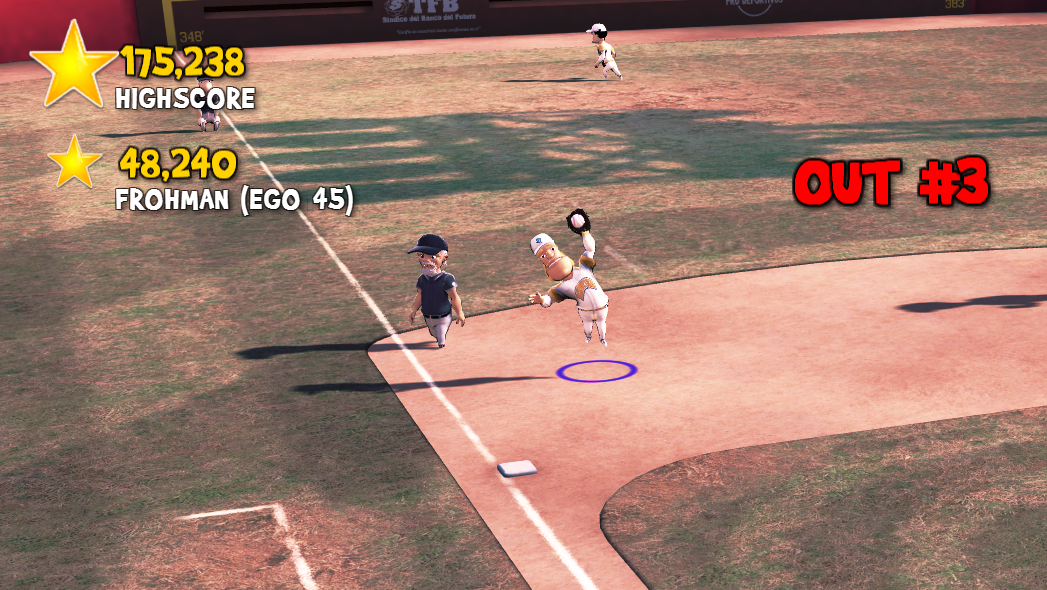
Timing jumps and dives is tricky, but lead to great plays.
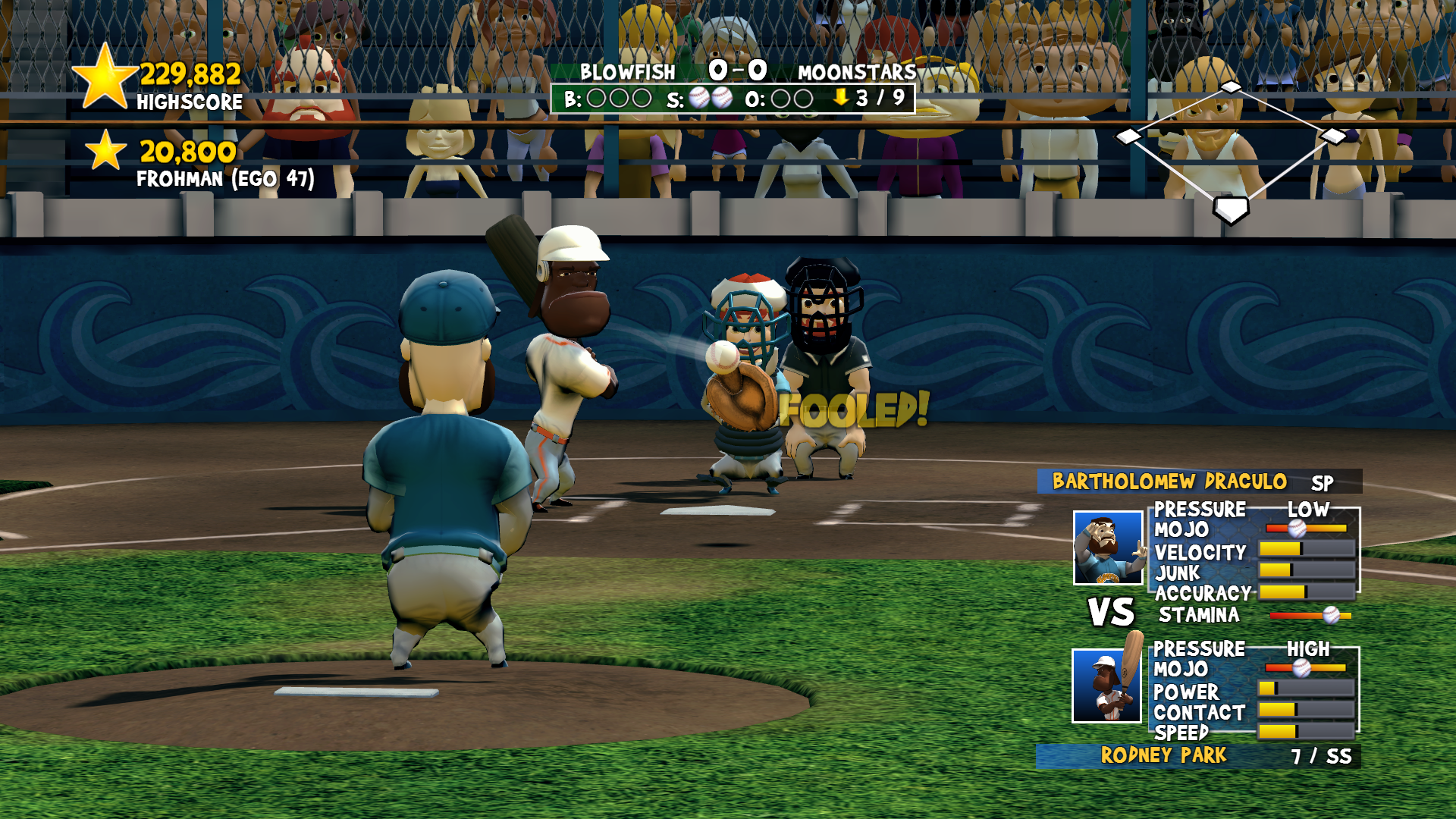
The right sequence of pitches, like a few fastballs followed by a change-up, can fool batters.
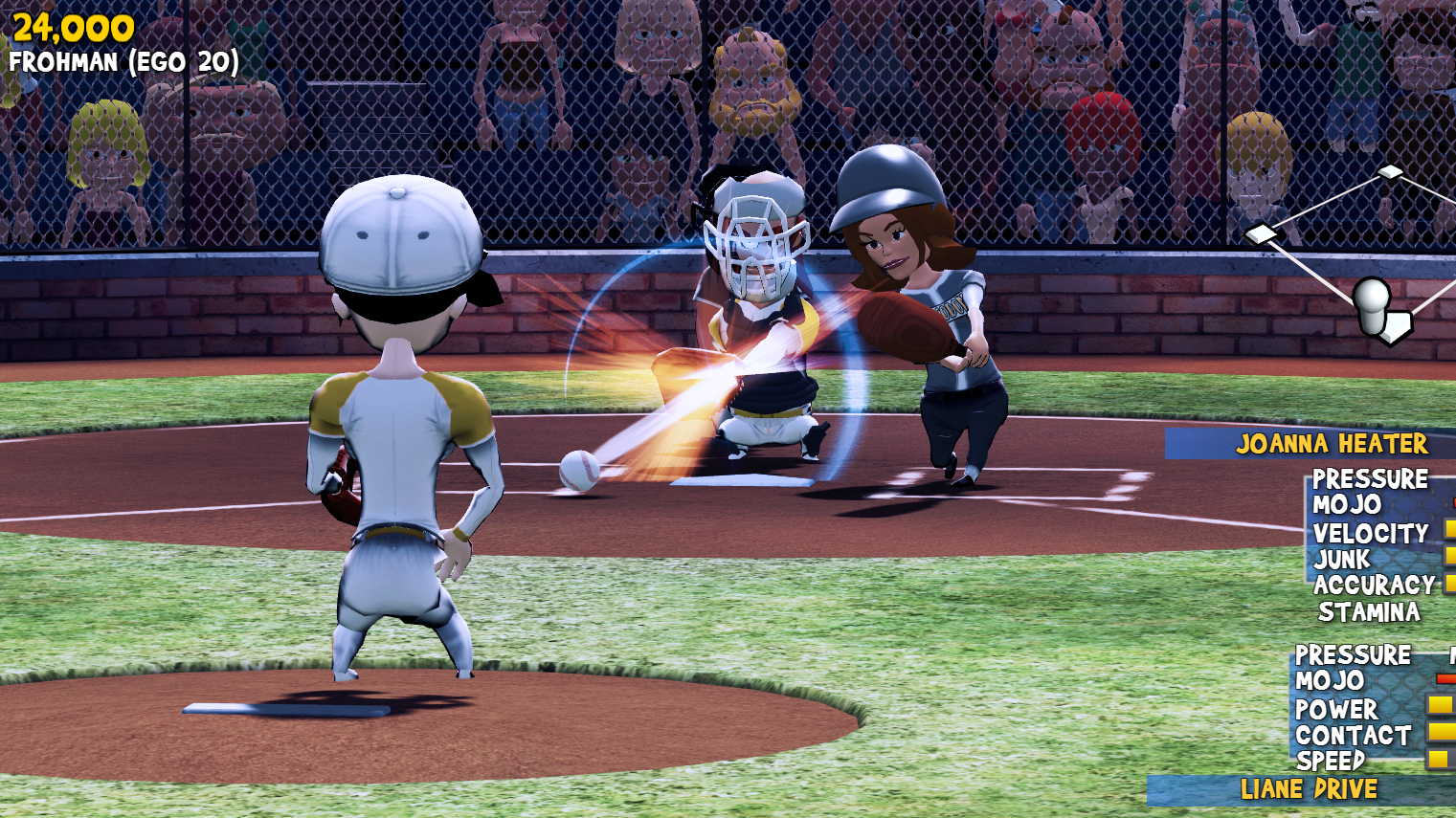
Super Mega Baseball has male and female players.
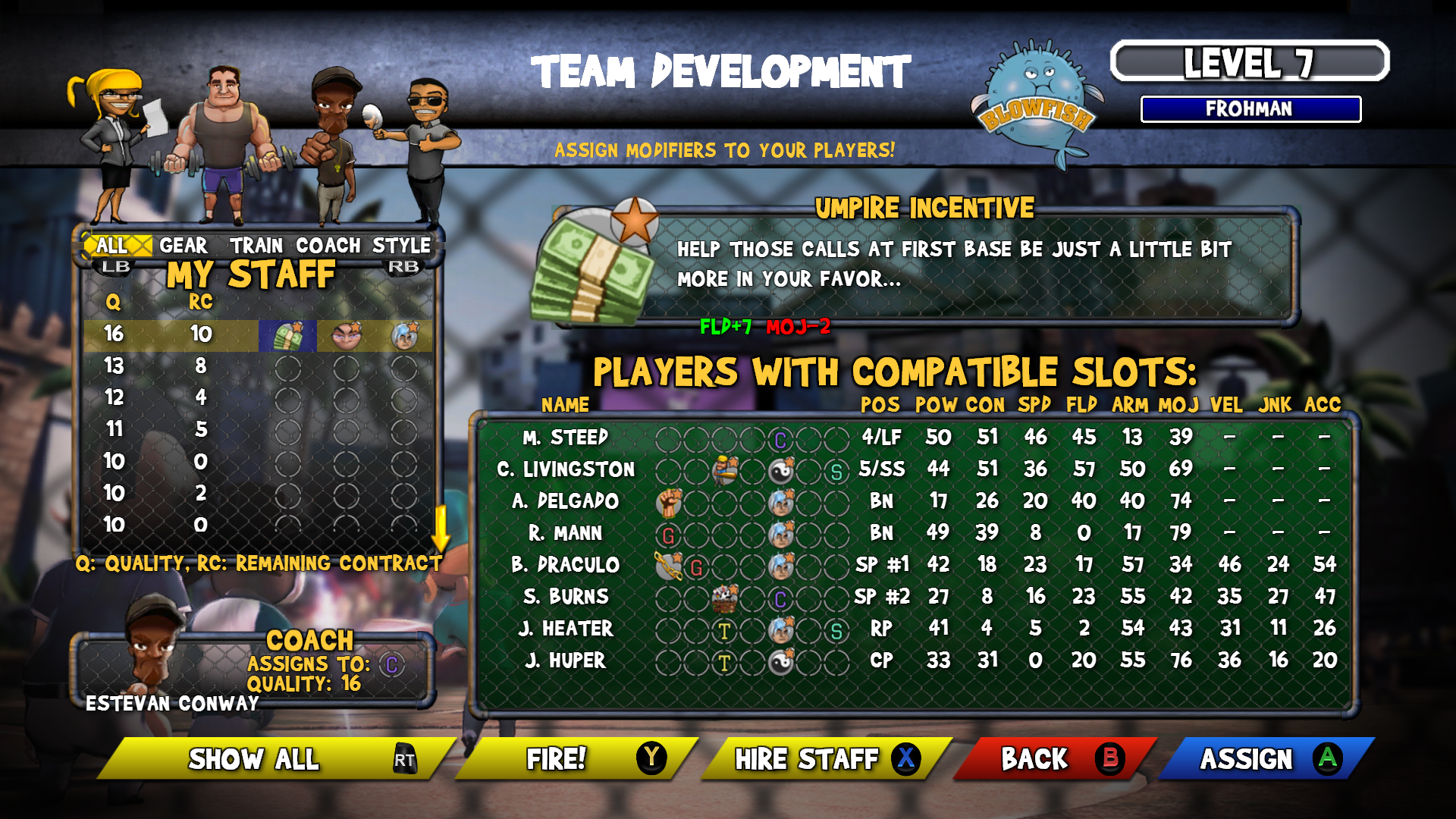
Casual and silly yet still tense and exciting. It's a shame there's no online multiplayer.

Chris started playing PC games in the 1980s, started writing about them in the early 2000s, and (finally) started getting paid to write about them in the late 2000s. Following a few years as a regular freelancer, PC Gamer hired him in 2014, probably so he'd stop emailing them asking for more work. Chris has a love-hate relationship with survival games and an unhealthy fascination with the inner lives of NPCs. He's also a fan of offbeat simulation games, mods, and ignoring storylines in RPGs so he can make up his own.
